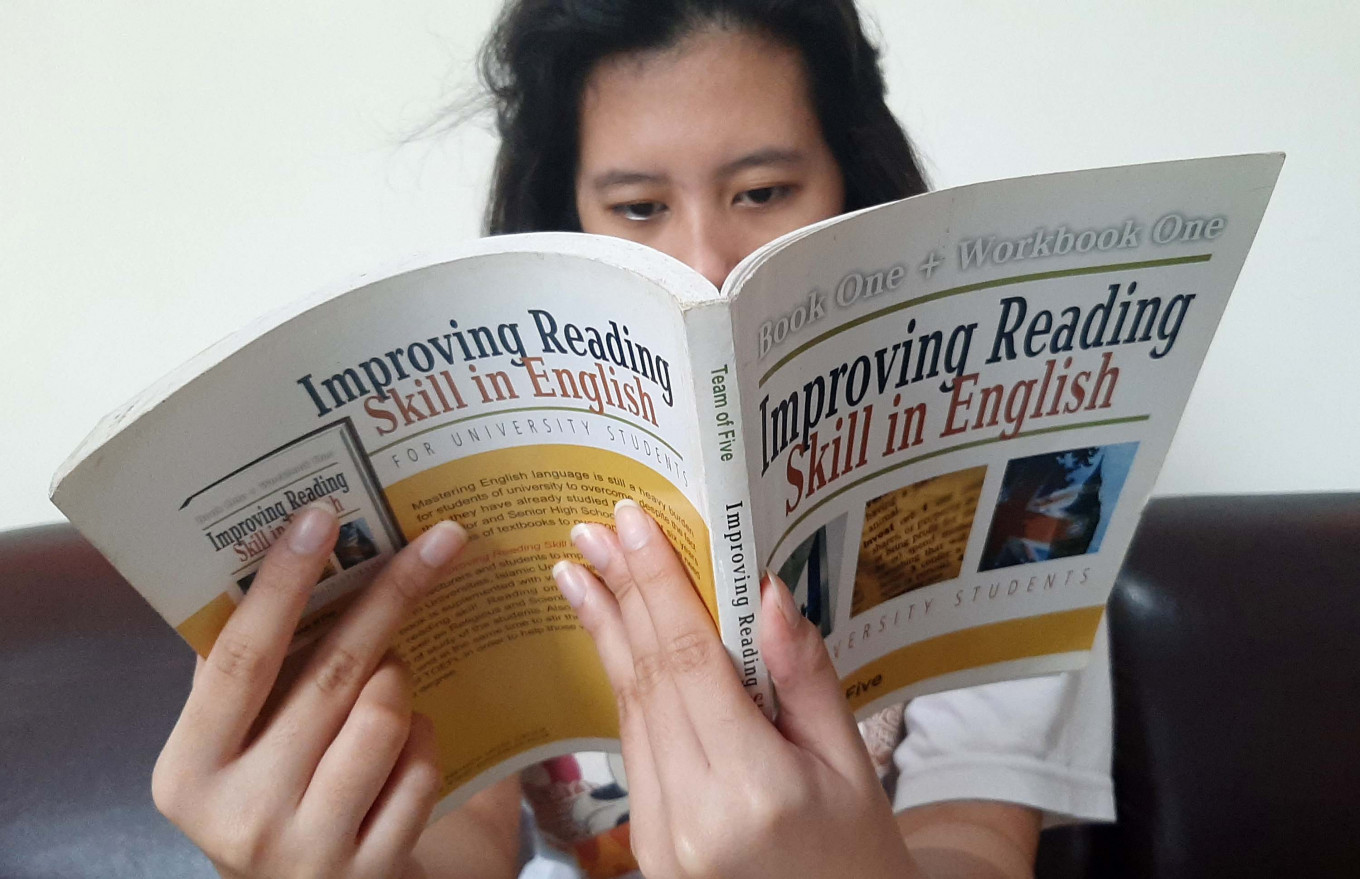Popular Reads
Top Results
Can't find what you're looking for?
View all search resultsPopular Reads
Top Results
Can't find what you're looking for?
View all search resultsRI rejects idea of making Malay official ASEAN language
Indonesia's education minister suggests that the Indonesian language would be better suited as an official working language for ASEAN, as he shut down Malaysia's idea to promote Malay regionally.
Change text size
Gift Premium Articles
to Anyone
T
he government has rejected a proposal by Malaysia to promote the Malay language as an official language of ASEAN, instead suggesting that Bahasa Indonesia (Indonesian) would be the more appropriate option.
Suggestions to expand Southeast Asia’s official languages beyond English have been floated frequently in the past, as ASEAN member states work toward a “common identity” to bolster its overall community-building project. But the search for a suitable lingua franca would have to account for the region’s rich history as a melting pot of cultures.
Most recently, during his official visit to Jakarta last week, Malaysian Prime Minister Ismail Sabri Yaakob suggested promoting Malay as a potential ASEAN language.
But Education, Culture, Research and Technology Minister Nadiem Makarim turned down the proposal and instead contended that Indonesian would be the more appropriate language to promote regionally.
“With all the advantages of the Indonesian language, in terms of history and linguistics, and how it has been internationally recognized, I believe that it is more fitting for the Indonesian language to be at the forefront [of options] as a medium of communication for official ASEAN meetings," he said in a statement issued this week.
He added that Indonesian was widely taught in many university campuses, including in Europe, the United States, Australia and several Asian countries.
However, he said that because it was a “wish from an ally”, the Malaysian proposal could still be deliberated in further detail at the regional level.
Last month, Ismail Sabri said he would confer with the leaders of ASEAN to propose the use of Malay as the region’s second official language, in efforts to elevate the international standing of his country’s mother tongue.
The PM said that apart from being spoken in Malaysia, Malay was also used as a language for instruction in several neighboring countries such as Indonesia, Brunei and Singapore, as well as in southern Thailand, southern Philippines and in parts of Cambodia.
“There is no reason why we cannot make Malay an official language of ASEAN,” the PM said on March 23, as quoted by The Star.
Ismail Sabri is not the first Malaysian leader to float the idea. In 2017, then-prime minister Najib Razak proposed that Malay become the main language of ASEAN and one of the world’s major literary mediums.
Observers say Najib had attempted to burnish his political credentials by championing the Malay language ahead of the 2018 general elections, which he eventually lost.
Home to more than 275 million people, Indonesia makes up roughly half of ASEAN’s entire population. As its biggest economy, it is also the de facto leader of the bloc.
Judging by the number of speakers alone, the Indonesian language would have been considered a natural contender for ASEAN’s second lingua franca.
However, due to Southeast Asia’s diverse makeup, as well as the multitude of local and foreign languages in use, ASEAN leaders agreed to make English the official working language, enshrined in the 2007 ASEAN Charter.
Meanwhile, the official languages of Indonesia and Malaysia both have their roots in the classic Malay language that was native to eastern parts of Sumatra, the Malay Peninsula as well as surrounding islands.
It is due to the carving up of borders by Dutch and British colonists that Malay started developing into two distinct languages in the 20th century, historian James Sneddon wrote in his 2003 book on the Indonesian language.
Before the advent of the Indonesian state, the rulers of the Dutch East Indies encouraged the use of Malay as a lingua franca to allow them to communicate with their ethnically and linguistically diverse subjects, considering its wide use in trade across the region’s many port cities.
This later developed into the primary language for emerging nationalists of the early 20th century, Sneddon noted, culminating in the Second Youth Congress of 1928 proclaiming Indonesian as the language of national unity.
By the time Indonesia gained independence in 1945, Indonesian was further enshrined in the new constitution as the nation’s official language, while the language spoken in Malaysia remains closely related to the old Malay stemming from the Riau-Johor sultanate.










